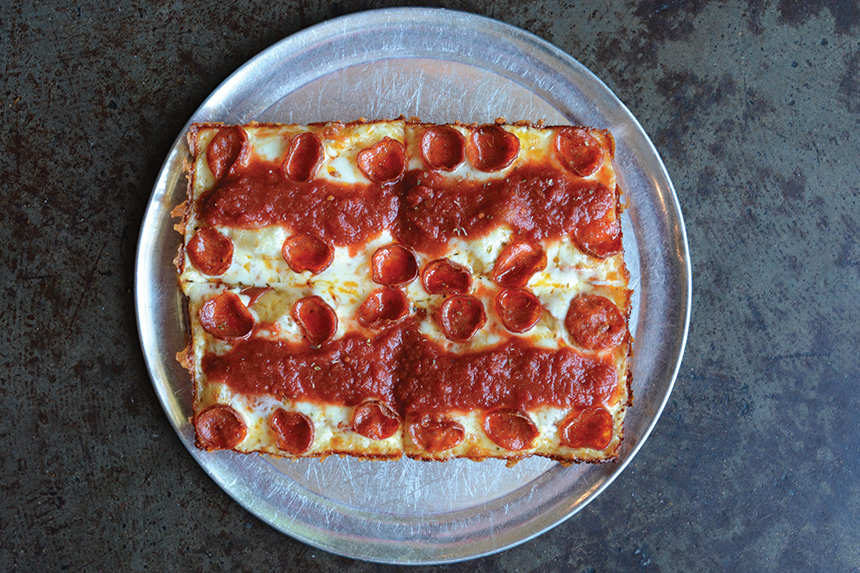Topics
Menu Development
Detroit Style Pizza: A Guide to Detroit Pizza
Discover Detroit-Style Pizza Detroit style pizza is a square, deep dish pizza that is known for its racing stripes sauce on top, cheese crust crown and light crust. Whether you call them red tops or square pizza, Detroit-style pizza is a unique pizza style that hast become one of the hottest pizza styles and one […]
Topics
Menu Development
Zucchini Sticks
Never look down on the idea of stick food as an appetizer option. Children and adults alike love stick food –– it’s fun, easy to eat, something a bit different. Stick food is here to stay. I have written about fried mozzarella sticks for Pizza ...
Topics
Menu Development
Antipasto Platter
One of the features of a menu in many Italian restaurants is the antipasto platter. In one form or another, and with any number of ingredients, it has a lot of appeal, and it is especially inviting for family dining when everybody gets to take part i...
Topics
Menu Development
Fresh Mozzarella
Let’s go back in time to May of 1889. We find Queen Margherita and her husband, King Umberto I, being served pizza at the palazzo in Naples where they are staying. The king and queen had heard about the famous pizzas of Naples, so naturally the...
Topics
Menu Development
Moussaka
There are some vegetables that you simply must peel to consume. The beautiful eggplant however, can be eaten, skin and all. It boils down to personal preference. Once you realize the health benefits from the eggplant’s skin, your peeler may nev...
Topics
Menu Development
Scamorza
Scamorza is the Rodney Dangerfield of cheeses –– it gets no respect. But it should –– this is a cheese that restaurant owners should take a hard look at. Just the idea of offering, say, a specialty pizza using scamorza will ge...
Topics
Menu Development
Bacon
> If we extend the logic that sausage is one of the most popular pizza toppings and that bacon is a pork product, then there’s no good reason why bacon shouldn’t be pursued with more vigor when an array of pizza toppings are menu listed. ...
Topics
Menu Development
Fried Artichoke & Zucchini
The appetizer section of menus has been taking a beating in the many Chicago restaurants I visit every day in my role as chief restaurant critic for the Chicago Sun-Times. I see customers moving away from expensive appetizers (and, believe me, t...
Topics
Menu Development
Mushrooms
Look beyond cultivated white mushrooms to add flavor, texture and variety to menu items Diners who like mushrooms really like them, giving operators a chance to promote specialty pizzas like the “Champignone”, which is offered by Pizza Bu...
Topics
Menu Development
Spinach
If you are of a certain age you will easily make the connection between spinach and Popeye, the comic book character. When he was in trouble and needed a jolt of extra power and strength, Popeye would open a can of spinach and toss it down in one fel...
Topics
Menu Development
Bacon is Back
Bacon is back. In the past few months I have come across no fewer than seven food articles in which bacon played either a main role or a supporting role in various dishes. Talk about pigging out. Did you know that there was a “Bacon of the Mont...
Topics
Menu Development
Fried Calamari
It wasn’t too many years ago that squid was considered nothing more than fish bait. Now it is on the appetizer menu of just about every Italian (and even non-Italian) restaurant you can name. There are several reasons why calamari fritti has be...
Topics
Menu Development
Nut-Free Pesto
Worried about potential allergic reactions? Want a nut-free pesto? Start with coarsely ground cheese as opposed to finely ground cheese to help better approximate the texture of a traditional pesto. Next, add fennel or finely diced carrots, zucchini ...
